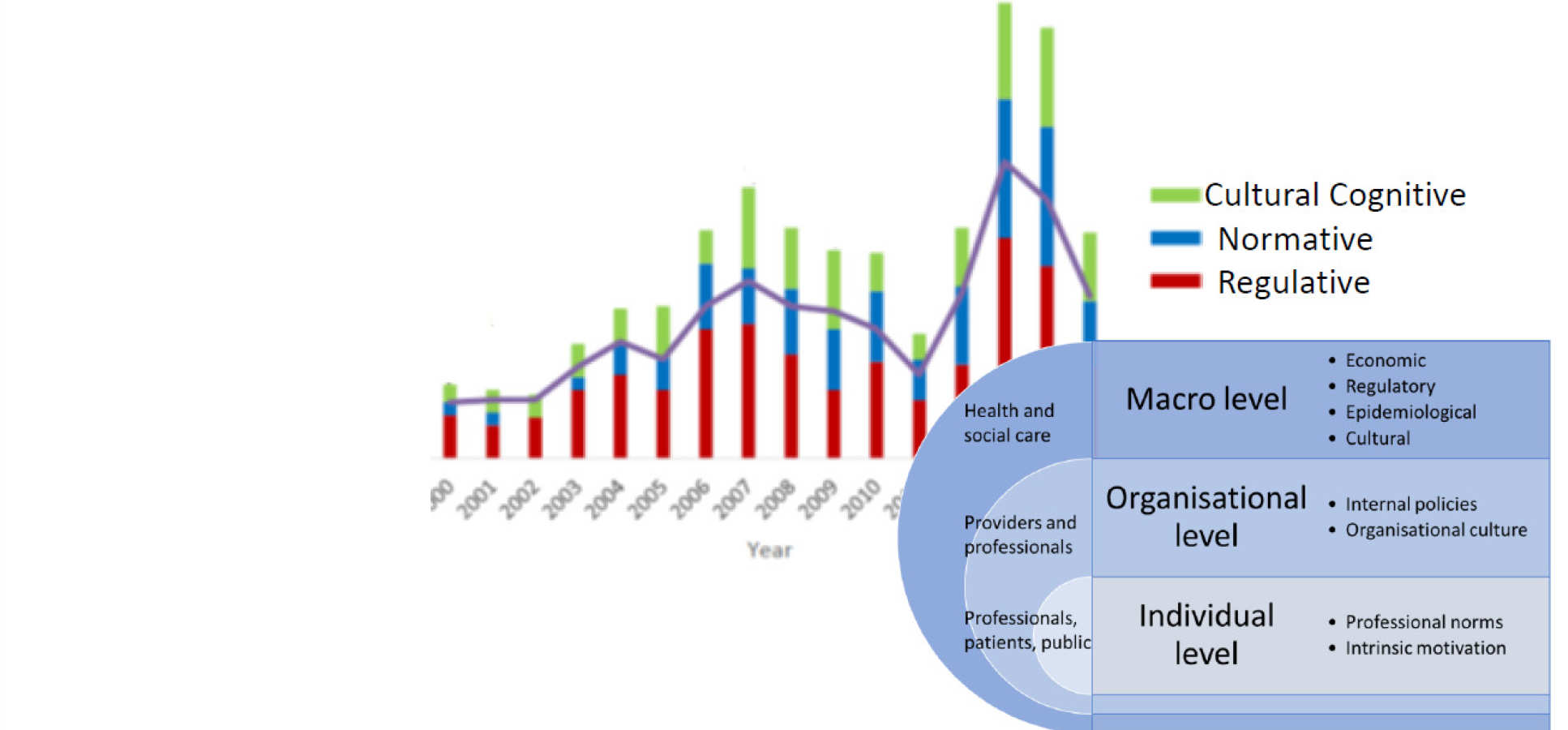WP1 Health system level factors: PESTELI framework

Overarching theoretical approaches
This project offers a comprehensive investigation of Antimicrobial Stewardship (AS) and Infection Control (IC) behaviours approached as a co-construction of individual, organisational and wider contextual factors. The project examines these factors at the micro-, meso- and macro-levels using theoretical approaches from the fields of strategic management, sociology, psychology, and anthropology. To evaluate how appropriate interventions may be successfully adopted and implemented within different contexts, an organising framework of implementation is employed.
A soft systems approach is used for the evaluation of different interventions and policies by mapping interactions and consequences using qualitative and quantitative data. To connect these multi-level and multidisciplinary approaches, the Consolidated Framework for Implementation Research (CFIR) is used as an overarching organising framework as it facilitates understanding of processes of introduction and management of change within a complex healthcare system or pathway and allows for examination of behaviours.
WP1 - Health system level factors: PESTELI framework
Methods
To provide an assessment of the ‘outer’ context a framework from the disciplines of strategic and health management has been adapted and employed; PESTELI: Political factors, Economic influences, Sociological trends, Technological innovations, Ecological factors, Legislative requirements, Industry analysis. Analysis from the perspectives of key stakeholder groups at the macro-national level and at the meso-organisational level is included.
Secondary data
Textual sources including policy documents, guidelines, board minutes, reports and strategies; structural process and outcome performance indicators.
Primary data
Key informant interviews including professional organisations, professionals, and public/patient advocacy groups.
Expected impact
- To identify ways of reducing overuse, underuse and misuse of antibiotics, improving quality of care and reducing waste of healthcare resources;
- To promote the efficient design of services by finding solutions along the patient pathway for patients undergoing surgery;
- In the long-term, to contribute to a reduction in costs to patients and society;
- To build research capacity in low- and middle-income countries and the tools to design and evaluate solutions


